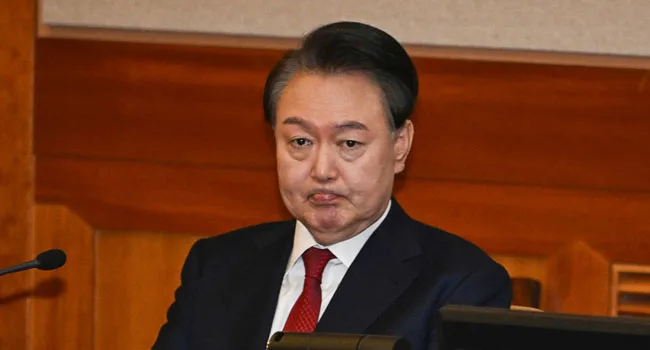Former South Korean President Yoon Suk Yeol will face his first criminal trial on Monday, charged with insurrection following his failed attempt to impose martial law in December—an unprecedented move that plunged the country into political crisis.
On December 3, Yoon abruptly declared martial law, ordering the suspension of political activity and censorship of the media. The decree, however, lasted just six hours before it was overturned by opposition lawmakers in the National Assembly.
The controversial move triggered swift political backlash, leading to Yoon’s impeachment by the legislature. The Constitutional Court subsequently upheld the decision, officially removing him from office on April 4 and stripping him of all presidential powers and privileges.
Despite his removal, Yoon now faces serious legal consequences. His criminal trial for insurrection begins Monday and, if convicted, the 64-year-old could face life imprisonment—or even the death penalty.
Yoon was arrested in January during a pre-dawn raid, following weeks of resistance against law enforcement. He became the first sitting South Korean president to be taken into custody while in office. However, during a preliminary hearing in February, his legal team successfully challenged the legality of his detention, resulting in his release after 52 days.
On Friday, Yoon vacated the presidential residence and returned to his private home in Seoul, where he was greeted by a crowd of supporters. In a brief statement, he said, “Now, I return to being an ordinary citizen of the Republic of Korea, and I will seek a new path in service of our country and our people.”
Following Yoon’s removal, South Korea is scheduled to hold a snap presidential election on June 3 to choose his successor. In the interim, Prime Minister Han Duck-soo is serving as acting president.
AFP


